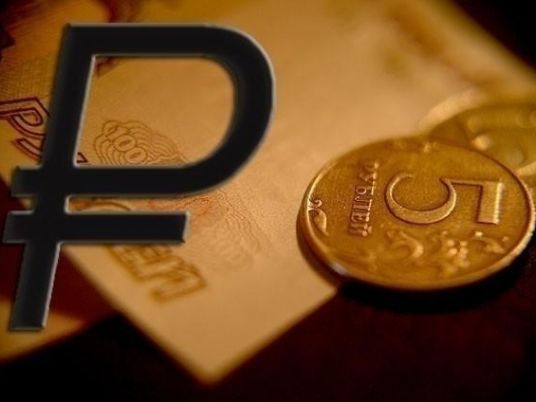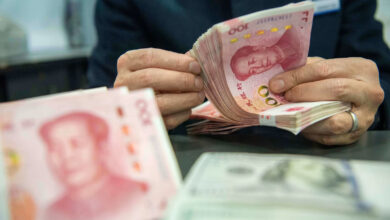
Yaman al-Hamaki, Professor of Economics at Ain Shams University, commented the possibility of using, beside the US dollar, in Egypt, the Russian ruble.
Hamaky said, during a telephone interview on the “Hadrat al-Mowaten” program, which is shown on Al-Hadath Al-Youm channel, Monday, that Egypt has mechanisms in international economic transactions that can greatly help it in facilitating exchange and benefiting from the current conditions.
She explained that China was the first to take this path, as it developed currency exchange agreements between all of its partners in Asia to purchase raw materials from them.
She referred to the currency exchange agreement between Egypt and China, explaining: “The exchange of currencies with China is through the use of the two currencies, the Chinese yuan with the Egyptian pound, in a certain volume of exchange and funds and through an intermediary to determine the value of the yuan in relation to the pound, often using the US dollar because it is the most traded currency in the world.”
Hamaky stated the benefits of such agreements, saying it reduces the demand for the dollar, deepens international relations between countries and reduces the effects of price fluctuations resulting from violent changes in the value of the currency.
“We do not have to use the ruble. We can activate an agreement to exchange rubles in the Egyptian pound to be used in trade or tourism,” she added.
“The central banks are responsible for this matter, because they are the entities that determine the volume of transactions and the exchange rate of a currency for a another currency,“ she explained.
Egypt was exchanging goods with Russia at one point in time, Hamaky said, referring to the positive impact of this on the development of the Egyptian industry.
The Russian ruble is scheduled to be listed among the currencies used in Egypt as of the end of September, which will positively affect the tourist flow from Russia to Egypt, RIA Novosti reported.
According to the Central Bank of Egypt, as of the end of September 2022, the Russian ruble will be listed among currencies used in Egypt, and this timing coincides with the beginning of the peak tourist season in Egypt, Tez Tour Russian tourism company said in a statement.
The company added that “providing space for travel companies and hotels to accept payments in rubles, among other factors, will undoubtedly have a positive impact on the flow of tourists.”
Additionally, the head of the Planning and Budget Committee in the Egyptian House of Representatives, Fakhry al-Feki, announced that Egypt plans to link its Meeza network with the Russian Mir system for payment in rubles by the end of 2022.
Feki, a former member of the Board of Directors of the Central Bank of Egypt, said that this step comes as part of a plan from the CBE and upon presidential directives to enhance commercial transactions, reduce deficit and boost exports.
RT, the Russian news television network, reported Feki as saying that linking the Meeza network with the Russian Mir system helps support the payment of the wheat bill for Moscow.
Feki explained that Mir is a Russian bank card that operates using the ruble payment system, which was launched in 2015 after some Russian banks faced problems with the companies Visa and MasterCard, due to Western sanctions imposed against Moscow.
The Meeza system is an Egyptian payment card bearing the logo of the local network for payments through Egypt Banks 123 Company.
Feki explained that activating the link between Mir and Meeza would allow easier dealing in Russian rubles, which would support the payment of Russian wheat bills, as well as support the revitalization of Russian tourism in Egypt, where the tourist can deal in rubles anywhere in Egypt.
The Mir card is now approved in more than 10 countries, namely Turkey, Vietnam, Armenia, Uzbekistan, Belarus, Kazakhstan, Kyrgyzstan, Tajikistan, South Ossetia and Abkhazia.




